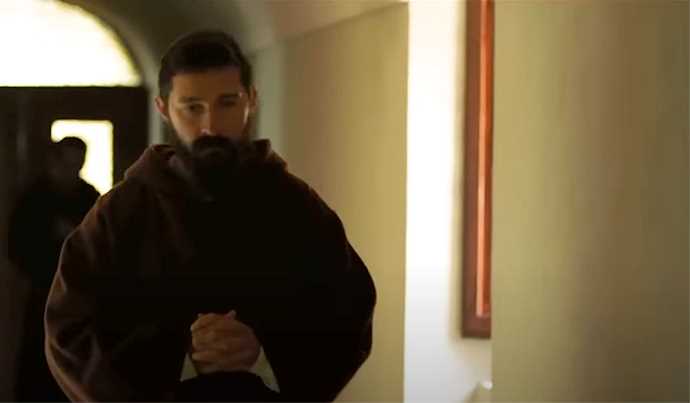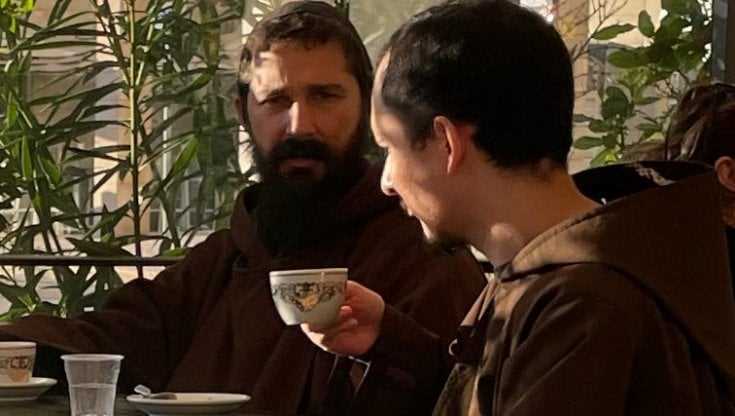Padre Pio
15Even though controversy has followed Shia LaBeouf throughout his career, it’s fair to say that he has courted it on more than one occasion. That’s what putting a paper bag on your head with the words “I am not famous anymore,” scrawled on it will do.
His career has certainly had its ups and downs, with both the public and Hollywood, as he’s bounced back and forth from studio projects to indie films.
His latest sees him team up with cult director Abel Ferrara, for this historical drama.

I think I got away quick enough so they won't think it was my fart.
Italy, 1920, and soldiers are returning to their homes after the war. Also arriving at San Giovanni Rotondo is Padre Pio (LaBeouf), who’s been away himself. He, much like the war-wounded and weary soldiers, isn’t in great shape, and finds himself struggling with his demons – well, one to be more specific, Satan.
Meanwhile, the town is suffering, with many believing it to be down to the anti-socialist regime in place, that are keen to stamp their authority on any kind of uprising, any way they can.

Dude! Cow's milk?! really?!
Although US filmmaker Ferrara shot to fame with two back to back hits with 1990’s King of New York and 1992’s Bad Lieutenant, his more recent offerings have made far less impact. And sadly this is no different.
The film, based on a real priest based in San Giovanni Rotondo during the massacre, is of two halves. The first follows Pio, struggling with his visions of Satan, within the confines of the monastery.
The second half focuses on the community of the town itself, with its soldiers returning home to a precarious future.
Ferrara was allegedly recommended LaBeouf for the role by Willem Defoe, a regular of the director’s work, and he’s a good fit. Of Sorts. A slight issue is that the US actor doesn’t speak Italian, so he speaks English throughout. Because of this, the rest of the Italian cast also have to speak English, despite the story being set in Italy, about Italians, which is a little on the jarring side. But he did convert to Catholicism during filming, so you can’t deny his enthusiasm.
It feels almost unnecessary however, as both story lines never really meet. LaBeouf’s scenes are mostly intense, with the actor spending a lot of time on his own, struggling with his visions. The connection between his story and that of the returning soldiers is flimsy at best, with their story being far more captivating, after all, there’s only so many scenes of LaBeouf being vexed one can take in one film.
With this split focus, both storylines feel weaker for it, which makes the film suffer as a whole.
There’s no denying that Ferrara’s work is always worth watching, but it doesn’t necessarily mean that it’s also entertaining, as it isn’t in this very case.
LaBeouf is clearly a talented actor, and this comes across more as a personal project for himself rather than to help his career in any way, and that has to be commended. Which sadly can’t be said for the film itself, that’s a little disjointed and lacking cohesion, with two stories in one, with both missing the mark.
It feels like a higher power than even Ferrara was needed to save this one.
